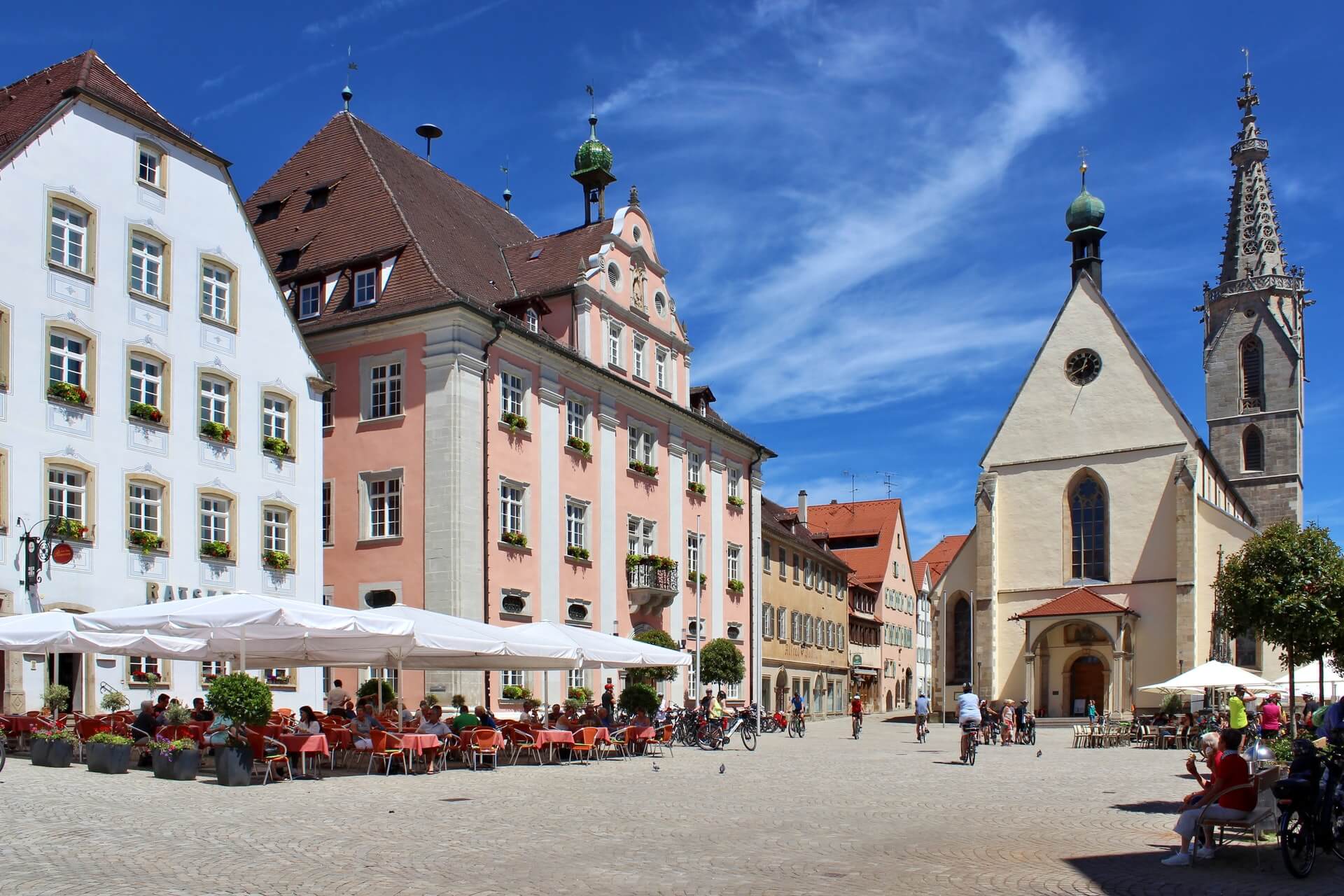Then In German - Lessons Lesson Library Latest Lessons Favorites Dictionary Flashcards Dictionary Lists Free Word Bank Word of the Day Free German Dictionary Free Top 100 Words Free Top 2000 Words German Key Words Free My Teacher Messenger My Assessment Test German Resources Mobile Apps My Grammar Bank My Not. Blog Help Center
Cards Vocabulary Lists Word Bank Word of the Day German Dictionary 100 Most Common Words 2000 Most Common Words German Key Phrases
Then In German

Honestly guys, English is very easy to learn. This follows from the overall structure of your language. For example, compared to many other languages, you have no gender, only "the". Also, verb conjugation follows some simple rules compared to other languages like French or Spanish. There are other good examples, but for now let's focus on German.
The Building Of The \
In fact, German is more complex than English and some other languages. Despite this fact, German has only about 300,000-500,000 words in our dictionary, while English has up to 800,000. So, congratulations, you've passed. (But this isn't the only fun fact about Germany.)
Although your vocabulary is much larger than German, we use words in everyday life that do not have a proper translation. You can get excited because we're going to show you some powerful words that will sound more German to you than some native speakers, which is great if you're planning to travel there!
We want to show you 10 words you should know when learning German. There is no correct English translation, but we'll make sure you understand what they mean.
And best of all, these words are actually used in everyday conversation between native German speakers, so let's get down to it, even though some of these words are hard to hear in everyday life.
Wolfgang Amadeus Mozart Quote: “if Germany, My Beloved Fatherland, Of Whom You Know I Am Proud, Will Not Accept Me, Then Must I, In The Name Of God, Aga...”
Kindergarten is a form of preschool education approach based on activities such as singing, playing, drawing, and communication, and is a transition period between home and school in Germany.
Mom or Dad prepares their child ages 1 to 6 in the morning before work with a sandwich and a small bag of fresh goodies. On the way to work, one of the parents leaves the child in kindergarten with other parents and children. He or she returns after work to pick up their son or daughter.
A quick note before we continue that sentence patterns are an important aspect of the German language, so you might want to brush up on that before continuing.

Onkel Fragt: "France, Gehst du Gerne in den Kindergarten?" Franz replies: "Ja onkel, ich gehe gerne in den Kindergarten!" (Here the child's name is Franz) - The uncle asks: "Frances, do you like going to kindergarten?" Franz replied "Yes, uncle, I like to go to kindergarten!"
Why Trade Restrictions Do More Harm To German Economy Than Iran?
This type of pre-school education is known in many countries, and usually even a German word is used to describe it. Did you know that kindergarten has a long history?
It refers to a person's condition and sense of security and well-being.
You are sitting on the couch with your husband, wife or your family in your home where you are always comfortable. You have a deep sense of security, protection, peace and trust. That's when you feel "geborgen", which literally means safety.
Mit seinem Partner zu Hause fühlt sie sich geborgen - She feels safe with her partner at home.
The Truth About Germany And France
The feeling of "Geborgenheit" means much more in German than you can describe with one word in English. When protection, joy, warmth, love, trust, peace, and comfort are embodied, then you can enter this state. That's a really strong word.
Your parents go on vacation for a few days, you're home, and then you have a "stumfre."
Mein eltern sind über das wochenende nich su house, ich habe stomfrei. - My parents are not home at the weekend and I have a "sturmfrei".

An apt English equivalent is the proverb, "When the cat is away, the mice play." Hosting a house party when parents aren't home is a bit of a chore. Well, maybe so, but young people in Germany like to be alone at home without their parents, at least for a while.
Can You Solve It? Are You Smarter Than A German 10 Year Old?
It might sound a little weird, but the Orworm is nothing more than a situation where you get a song stuck in your head.
You are traveling with friends and you hear a song on the radio that you know and love very well. The song is done and you can sing the lyrics over and over for the next few hours.
Ich liebe dieses Lied, es ist ein echter Ohrwurm”. - I love this song, it's stuck in my head.
By the way, if you want to solve this problem and get this song out of your head, listen to the song completely from beginning to end, because this usually happens when you listen to a song and don't finish it.
German Tv Shows
It has nothing to do with cheese or food. It actually refers to a short child, literally the height of three cheese wheels. Well, we have a cheesy connection. Truth be told, everyone loves cheese.
A kid plays with his uncles and aunts at a family gathering and things get a little wild. Maybe the kid says something he shouldn't, so the uncle or aunt calls him "Dreikesehoch."
Usually, this word is only used when a child is misbehaving or being a bit rude (or rather rude) in relation to adults.

There is no real context when this word is used. It's more about the deep desire you feel when you're at home and you know you have to be there to explore the world, experience new cultures and cities, and meet new and amazing people from around the world.
German Embassy In Beyoglu (then Pera) In Istanbul (then Constantinople). Turkey. Late 19th / Early 20th Century Postcard Stock Photo
It is very popular among the young generation all over the world. People use it as hashtags in their Instagram posts, and even a movie is now called this old German word, full of history and passion.
You return from a long vacation, grab your suitcase and arrive at the airport for your flight. Then you suddenly look out the airport window and see planes taking off and want to go back to the beach or mountains you just came from.
"Fernweh" is actually something similar to "Wanderlust*" but you need to differentiate it a bit. "Wanderlust" is the desire to be somewhere away from home, to explore new things and have experiences, with "Fernweh" you think more about a special place you've already been.
When someone else has a better understanding of situations and knows how to interact with people and read their needs. With accurate and tactful understanding of situations.
German Economy More Resilient Than Feared, Bundesbank Says
Do you know motorcycle racing on big tracks at high speed? The driver seems to be very careful sometimes and he drives those powerful cars around the corner where other people have a hard time getting the car.
These riders have a good feel for their bike's throttle and brakes, and you can tell in German that they have the right feel of the bike at their fingertips.
Er hat ein echtes Fingerspitzengefühl beim Verkaufen von Autos. - He has a real knack for selling cars.

The term is often used to describe how people interact with other people, but it is much more than that. If you have a particular hobby or job that requires a steady hand or precision, you may also have this skill.
German Conjunctions: List Of German Linking Words
The word can be very difficult to pronounce. But luckily for you, there are resources you can use to get help with this.
Imagine you have made a new friend and you want to hang out with him/her at home for a while and introduce him/her to your parents. Your parents come home and try to be really "cool" with your friend, and they do things that aren't appropriate for someone their age. Then you are ashamed of your parents.
This may happen to you often, and it may bother you, but let's be honest. It's so interesting to watch someone else be in a situation, I'm sure we've all experienced it before.
Each of us can remember such a situation when the teacher asked for homework and you did not prepare anything.
Ways Swiss German Is Different Than Standard German
You need to quickly come up with excuses and whatever you have
Post A Comment:
0 comments so far,add yours